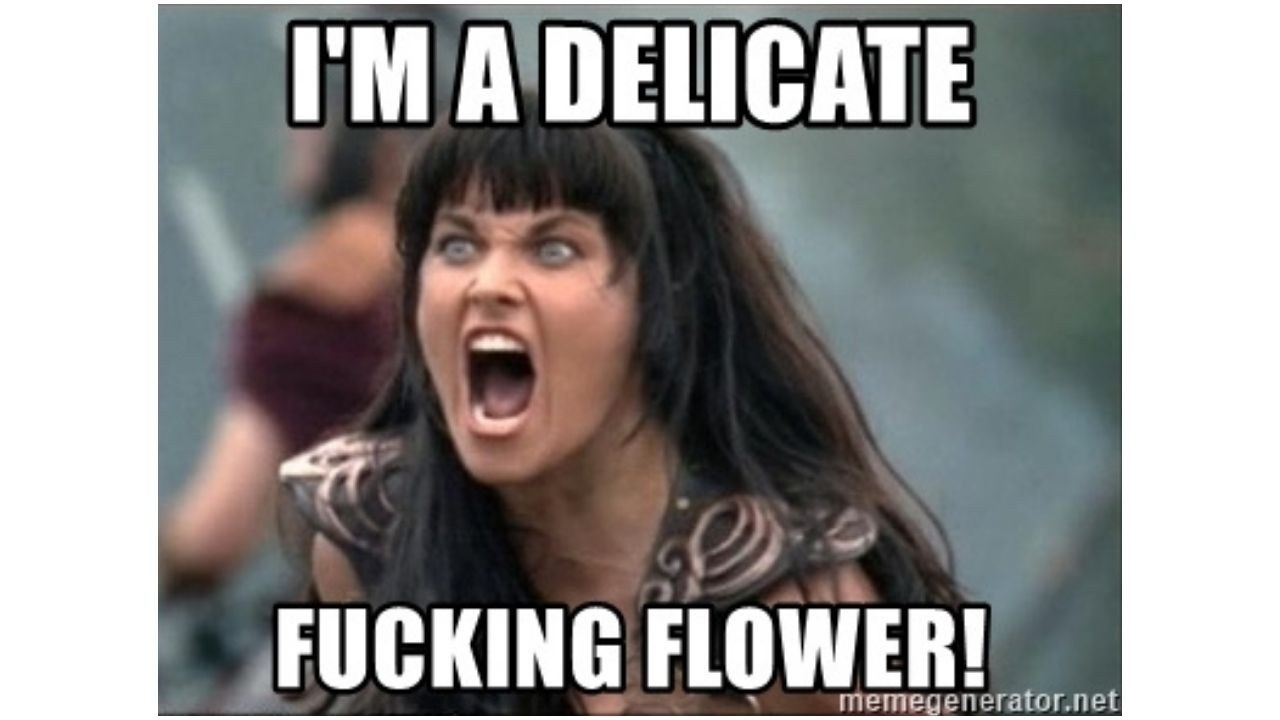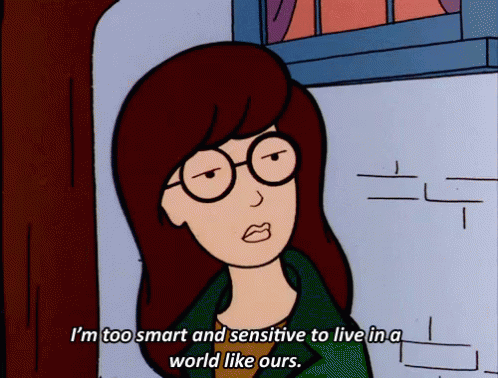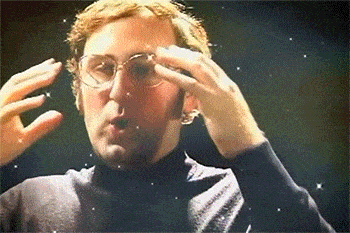What high sensitivity, the patriarchy, and Buddhism have in common (it's more than you think)
May 12, 2022
Once, I went to get ice cream with a coworker. I was telling him about the day before, when I’d stepped out of the office and onto Market Street, a busy thoroughfare, to find an elderly man with long gray hair lying on the sidewalk, convulsing. So many passersby were just strolling past as if nothing were happening, but I couldn’t. I tried to talk to the man but it was like he was frozen in his body. He looked at me but couldn’t speak.
I called 911 and stayed with him until the medics arrived, but I was heartbroken over how many people didn’t stop to see what the matter was and how they could help. On my way home on the train, I cried.
Telling my coworker the story, I teared up again. His response? “How are you going to make it in this world, being so sensitive?”
I felt a familiar, defensive disbelief welling up. Again? I thought. I should have walked out of that Ben & Jerry’s then and there. Instead, I mustered up some righteous indignation and explained that my sensitivity was not the problem here—that I didn’t want to be someone who didn’t stop and help. He shook his head. “Not every problem is your problem,” he said.
Do you have a story like this? Maybe many stories?
Stop being so sensitivist
Even if you’re not familiar with the book The Highly Sensitive Person by Elaine Aron, I’m guessing if you’re highly sensitive, you know it. Deep in your bones. And you’ve probably been told you are with varying levels of concern and/or disdain by family, classmates, teachers, frenemies, and coworkers your whole life. (Not sure if you’re highly sensitive? Take this quiz. Also, new research is showing a lot of overlap between neurodivergent and highly sensitive traits, and it appears you can have one without the other, or both.)
In western culture, “sensitive” is an (often subtle) insult. The implication is that if we’re sensitive, if we feel things deeply or for longer than others, if we’re easily overwhelmed, that something is wrong with us. Somehow, both we and others understand there’s an ideal we’re not living up to—and we’re defective for experiencing life differently.
Yet the science-backed trait of high sensitivity is inherently different: our nervous systems are quite literally wired differently than 70-80% of the population. Having a highly sensitive nervous system means, among other things, that our systems are more easily activated and respond differently to stimuli. Which is not, in itself, a problem.
What is problematic is the implication that because we are sensitive, we are weak; because we are sensitive, we cannot survive in this world. It rests on the belief that life is, to quote philosopher Thomas Hobbes, “nasty, brutish, and short”; and the only way to survive is to build a thick enough exoskeleton to withstand the massive beat-down that we’ll all inevitably receive simply for existing.

Daria was probably an HSP.
I’m not here to tell you life is all sunshine and sparkles. We all know life can be a shit sandwich, and sometimes, an entire shit buffet. While life quality and expectancy have improved considerably for many since Hobbes’ 1600s, the mentality of “it’s a dog-eat-dog world” lives on—and it carries a patriarchal odor that, as women and feminine-of-center folks, we’ve had to contend with for over 12,000 years.
Because the deeper, more disturbing implication is that being sensitive is feminine. And in a patriarchal society, feminine means second-best. It also means emotionally volatile, weak, worried, neurotic, and “crazy”.
Aron’s research found that equal numbers of women and men are highly sensitive. I call this toughen-up-or-die attitude toward those with high sensitivity, combined with the misogynistic attribution of sensitivity with “the weaker sex”, sensitivism, and it does a deep disservice to people of every gender.
When it comes down to it, we all have an innate, deeply wired drive to belong. It’s genetically beneficial to want to fit in with the 70-80% of the world that’s sensitive, but not highly so. Most of the way our society functions was designed by non-HSPs; they made many of the rules. (Can you imagine a highly sensitive person coming up with the idea for Lollapalooza?)
As feminist marketing consultant Kelly Diehls says, “We have to pour our-marked-as-feminine selves and responsibilities into a male mold in order to succeed in the marked-as-masculine world.”2 Part of what’s marked as masculine is strength and invulnerability; part of what’s marked as feminine is sensitivity.
It makes sense to want to succeed, to become the biggest and best version of ourselves, and to be willing to go all in and play the game in order to win it.
Aaaaand, as highly sensitive people, our drive for belonging and success in deeply competitive environments can create a lot of suffering for ourselves.
The masochism of highly sensitive high achievers
How often have you asked yourself, “When will I stop getting so overwhelmed so easily?” or “Why does fluorescent lighting bother me so damn much?” or “I don’t like malls or fireworks displays…what’s wrong with me? Do I hate fun?”

Me, any time I go downtown.
Highly sensitive types who are also high achieving tend to be strong-willed enough to do whatever it takes to meet their goals and fulfill their dreams. This often comes with the price of entry: do as others do, but do it more, and better.
So we put on our big-person pants, learn to excel, and roll with the punches as best we can. We hide our sensitivity, ignore our impulses, and pack our work and social calendars full. Constantly meeting, talking, doing, in environments that are loud, poorly lit, and overstimulating, often comes with the territory of success as we typically define it.
We’re already highly attuned to stimuli and tapped in to how others perceive us. But we create suffering for ourselves when we compare our operating systems to others’ and pretend we aren’t who we are, that we don’t need what we need, and that everything is just hunky-dory when we’re reeling inside from one minute to the next.
By trying to be something we’re not, and by (usually unconsciously) aligning with patriarchal notions of what “normal” is and what seems required to succeed, we often push ourselves further away from our truth.
It’s easy to ignore the basics of how you best operate, especially when you’re driven to achieve big things. It’s a tension highly sensitive high achievers have to constantly navigate: how much can I push myself without blowing a fuse? How far is too far?
Here’s the gold nugget I want you to walk away with today: being highly sensitive in itself does not equate to suffering. Your resistance to it does.
Disarming the archer
There’s a Buddhist parable about suffering in the Sallatha Sutta, one of the oldest Buddhist texts. The parable is often retold like this:
The Buddha once asked a student, “If a person is struck by an arrow, is it painful?” The student said duh. (Silly Buddha.) He then asked, ”If the person is struck by a second arrow, is it even more painful?” Again, the student said yes, duh.
The Buddha then explained, “In life, we can’t always control the first arrow. However, the second arrow is our reaction to the first. This second arrow is optional.” The student’s mind then exploded.
 Like this.
Like this.
The first arrow in the story symbolizes pain: the overwhelm, the stubbed toe, the relationship ending, the illness. It’s the pain that can’t be avoided when we experience the shit sandwich of life.
The second arrow symbolizes suffering: it’s our reaction to the painful event. It’s how we interpret that pain, and what we make it mean about us, usually along the lines of I’m not worthy/good enough/smart enough/lovable.
Suffering comes from resisting what is: in this case, having a highly sensitive nervous system.
While having high sensitivity as a trait can certainly be uncomfortable, overwhelming, even painful at times, we make it worse by trying to squash ourselves into cultural narratives about what is or isn’t “normal”.
There is no normal. Normal is an illusion.
But in our earnest efforts to belong and achieve, we often resist our experience, denying, judging, or criticizing what we’re feeling. We believe the pain shouldn’t exist in the first place, so we do whatever we can to remove it from our realities. Which creates the second arrow.
Listening to the sensitive one within
What if, instead of judging yourself or comparing how you operate with others, you accepted it? What if you not only accepted it, but actually celebrated your sensitivity—even treating this part of you like a friend you respect and admire?
When you stop resisting, you can start working with instead of against yourself. And you can begin making choices and taking actions from a place of deep acceptance and self-friendship, in order to create a life that fully supports you. The more you accept your highly sensitive self as you are, “delicate flower” and all, the easier it will become to design your life in a way that actually feels good, not just looks good.
I’ll leave you with a few questions to ponder:
- How do you resist your own sensitivity?
- How do you push beyond what is reasonable for you because you see others do it and on some level you want to fit in?
- How much do you trust your own body and what it tells you?
- Do you believe others will judge you if you truly articulate what you need, even if it’s different from them?
No matter what your answers are, you’re not alone here. 20-30% of the population (and also, ahem, me) have your back. Being highly sensitive comes with its own challenges—as well as its own gifts that, once mastered, can guide you in creating a life that aligns with who you truly are.
If you’re interested in getting support around how to design your best-feeling life, apply for a free discovery session with me and we can chat about what it might look like to embrace all your glorious, nuanced, dynamic sensitivity and start seeing it as your superpower to help you create the life you’re born to live.
To honoring your sensitivity and telling the patriarchy to F off,
Caitlin "I Cry During Insurance Commercials and I Like It" Clarke
Want to break free from the limiting beliefs that are holding you back?







